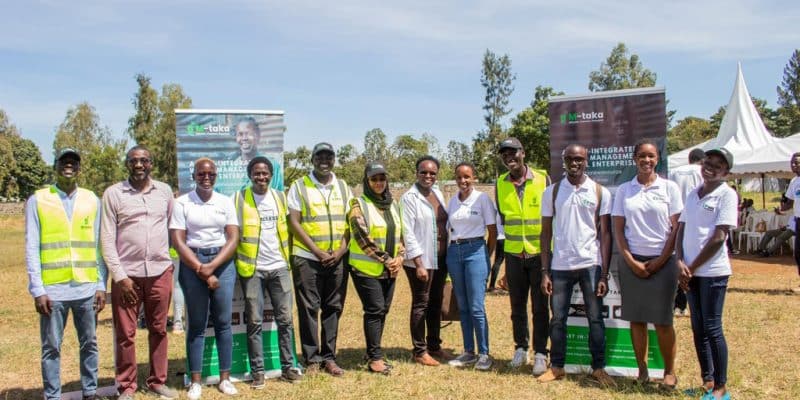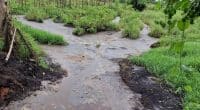The Kenyan part of Lake Victoria in the town of Kisumu will gradually be spared pollution thanks to a mobile application that enables local people to better manage their plastic waste.
“M-Taka”. This is the name of the new mobile application that is helping to improve plastic waste management in the Kenyan town of Kisumu. The digital solution, developed by a start-up of the same name, connects waste collectors with the people and businesses that generate most of the plastic bottles, cans and bags.
According to Stela Kamwasir, Regional Director of the National Environment Management Authority (NEMA) in the southern town of Nyanza, the initiative is “the safest way of preventing plastic bottles from ending up in Lake Victoria”. The body of water (around 68,800 km2) bordered by Kenya, Uganda and Tanzania has in recent years become a dumping ground for local residents, who dump all kinds of plastic materials. Lake Victoria supplies drinking water to a number of towns in East Africa, starting with Kisumu.
“M-Taka” should therefore help to raise awareness among users of the sustainable management of plastic waste and, more generally, to improve sanitation. “We are raising residents’ awareness of the need to eliminate plastics from our midst. To do this, we’re going to place agents in every corner of the city so that we can reach customers who are prepared to give up their bags and bottles. The aim is to develop a culture of recycling”, explains engineer Benson Abila.
Stopping the tide of waste
In Kenya, the closure of illegal landfill sites and the recovery of plastic waste in the 47 counties are at the heart of the law on sustainable waste management recently promulgated by the government. A measure welcomed by the United Nations Environment Programme (UNEP), but embarrassing given that supermarkets in Kenya distributed up to 100 million plastic bags in 2019 alone, just two years after the ban on the use, manufacture and import of plastic bags in this East African country.
Read also-AFRICITIES 2022: what concrete commitments for the future of intermediate cities?
For the time being, eco-responsible initiatives are multiplying, including in Nairobi. One example is Dow’s operation to collect and recycle 30,000 tonnes of plastic waste in the Kenyan capital in the second half of 2022. The American supplier of packaging solutions has collaborated with the start-up Mr. Green Africa in this anti-pollution campaign, which has also targeted Egypt, Guinea and Nigeria.
Benoit-Ivan Wansi






